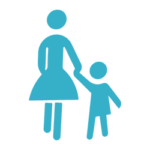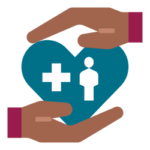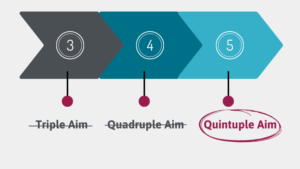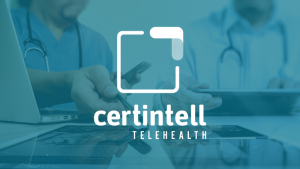Certintell’s blog series, “Industry Insights,” takes a look at what topics are buzzing with popularity in the mHealth and care management arena for Community Health Centers (CHCs), FQHCs and other community-based organizations. Here, you can explore how legislation might affect your workflows, what statistics might be preventing better patient outcomes, and tips for pushing past your biggest care barriers. Stay on top of what FQHC news you should know below! This month, explore what the end of the PHE means for CHCs and their patients, HRSA announces $30 million in grants to expand early childhood development services, and NACHC releases positive data highlighting how health centers helped push health equity during the COVID-19 pandemic.
End of the COVID-19 Public Health Emergency–What That Means for Providers, FQHCs & Telehealth 
On January 30, 2023, the Biden Administration announced their intentions to end the COVID-19 public health emergency (PHE) on May 11, 2023. Here are some of the changes you can expect to see:
Telehealth:
Telehealth flexibilities, such as smartphone administration and lifting of geographic location restrictions have been extended to December 31, 2024, due to the Consolidated Appropriations Act of 2023.
COVID-19 Vaccinations, Tests, & Treatments:
The end of the public health emergency may cause many Americans to start paying for testing and treatment that was previously provided at no charge by the government. While most Americans covered by insurance will still have access to these services without cost, uninsured people may face difficulties in obtaining free services.
Medicare:
During the public health emergency, hospitals treating COVID-19 patients received a 20 percent increase in reimbursement. Additionally, out-of-network hospitals seeing patients affected by COVID-19 with Medicare Advantage plans were allowed to bill as if they were an in-network facility. These flexibilities will be ending on May 11, 2023.
Medicaid & Public Assistance:
The end of the public health emergency means that several enhancements to public assistance programs will also end. Medicaid will begin normal disenrollment processes starting April 1, with an estimated 15 million people potentially losing coverage. Additionally, food stamp recipients will no longer receive extra benefits.
 American Heart Health Month
American Heart Health Month
February is American Health Health Month – a month dedicated to educating and raising awareness of cardiovascular disease.
This year’s CDC campaign, “Live to the Beat”, is focused on empowering Black adults aged 35 to 54 to reduce their risks for cardiovascular disease (CVD). While CVD is increasing each year in working-age adults, Black adults have the highest burden of CVD. In the United States, Black adults die from heart disease twice as much as White adults.
CDC has multiple resources for providers to help patients manage cholesterol, monitor blood pressure, eat healthier, and more.
HRSA Announces $30 Million in Grants for Health Centers to Expand Early Childhood Development Services 
On February 17, 2023, the U.S. Health Resources and Services Administration announced the availability of new grants for HRSA-funded health centers.
HRSA-funded health centers help provide essential primary care services to underserved communities serving 30 million people across the country. With approximately 14,000 service delivery sites, this additional funding will allow for developmental screenings and follow-up services for children. The $30 million available in grants will assist health centers in developing its workforce and increase its capacity to serve more children.
Applications for the grant are due on March 17, 2023. To read more about these awards and fill out an application form, click the link below.
How Community Health Centers Helped Health Equity During the COVID-19 Pandemic 
Community health centers have long been champions of health equity, with health centers serving more than 14.5 million people living in poverty in the last year. However, since the beginning of the pandemic, health centers have been on the frontlines providing care to underserved populations.
Earlier this month, the National Association of Community Health Centers released an announcement surrounding the success of Community Health Centers during the COVID-19 pandemic. Since the release of COVID-19 vaccinations, health centers have administered 19.2 million COVID-19 vaccinations. They also found that over 60 percent of the shots were administered to racial-ethnic minorities and 2 in 3 tests were performed on people of color.
White House Awards Community Health Centers $11 Million to Address Disparities in Cancer Screening and Follow-Up Care 
One year ago, the Biden Administration launched Cancer Moonshot, an initiative designed to set new national goals to cut the death rate from cancer by 50 percent in the next 25 years. On February 2, 2023, the U.S. Department of Health and Human Services awarded an additional $11 Million to 22 Community Health Centers to close the cancer screening gap and decrease the rates of preventable cancers. These health centers will use these awards to improve access to cancer screenings and early detection services in underserved communities. This investment is another needed step to reduce disparities in cancer across incomes, races, ethnicities, gender, & incomes.
Check back here at the end of every month for more FQHC news!



